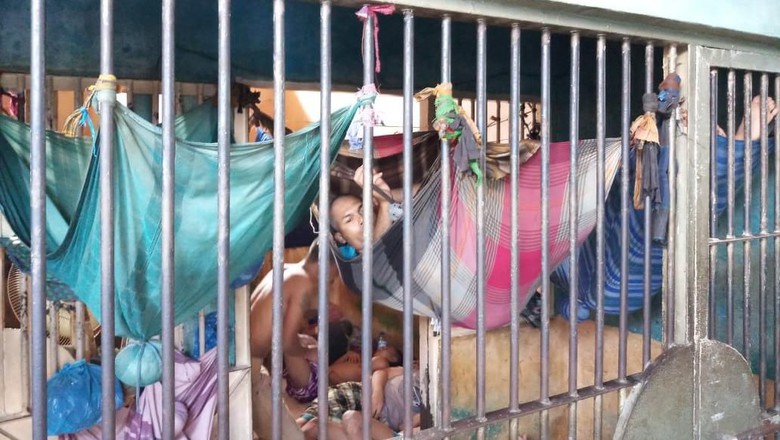Horrible overcrowding has long been a serious issue in Indonesia’s prison, but one that rarely merits much attention from average Indonesians or the local media. But the issue has been much in the media spotlight this week — for entirely wrong-headed, homophobic reasons — after an official from the Ministry of Justice and Human Rights (KemenkumHAM), which oversees the country’s prison system, said that overcrowded cells had led to inmates in the province of West Java becoming “homosexuals and lesbians”.
Given how highly stigmatized LGBT individuals have become recently in religiously conservative Indonesia, this news shocked citizens throughout the country (none of who, we’d guess, have ever watched Oz or Orange Is The New Black) and has led to KemenkumHAM promising to take action by “isolating” inmates that have engaged in homosexual acts.
“If sexual deviations are found in either male inmates or female inmates, the first step taken will be to separate LGBT prisoners from normal inmates by placing them in isolation rooms, namely residential rooms for sick and medical prisoners,” said the director-general of corrections at KemenkumHAM, Ade Kusmanto, yesterday as quoted by Detik.
“This step will be taken so that there is no transmission of sexual disorientation to other inmates,” Ade added.
The misconception that homosexuality is a kind of contagious disease is widely accepted as fact by many in Indonesia and often used as a justification for discrimination against the persecuted minority group.
Another scientifically disproven but popular belief in Indonesia is that homosexuality can be “cured” through counseling and religion. Ade said that prisoners that are identified as being gay will be given “guidance”, including psychological and religious counseling, as well as medical testing for STDs.
The issue of LGBT inmates blew up on Monday after an official from the West Java office of Kemenkum HAM, Liberti Sitinjak, said that overcrowded prisons were causing inmates to become gay due to their close physical proximity and a need to fulfill their biological urges.
“It’s like this, [the overcrowding] results in feet touching feet, head meeting head and bodies meeting bodies. The result is the emergence of homosexuals and lesbians,” Liberti Sitinjak, head of the ministry’s West Java office, said as quoted by Detik.
According to Liberti, the province’s prisons have a capacity to hold 15,658 inmates, but 23,681 are currently being incarcerated. Liberti said an obvious solution would be to rehabilitate instead of incarcerating convicts who committed relatively lighter crimes, such as drug users, who make up around 60% of the province’s prison population.
Blatant homophobia aside (and he certainly is not the first Indonesian official to openly discriminate against and spread misconceptions about the highly stigmatized LGBT community), Liberti’s proposed solution is one that is being considered to solve the prison overcrowding problem nationwide.
In January, photos showing inmates at a prison forced to sleep in hammocks fashioned out of sarongs and hung from their cell’s bars went viral, highlighting just how severe the overcrowding issue is. According to Minister of Justice and Human Rights Yasonna Laoly, the official total holding capacity of all Indonesian prisons is 123,025 but there are nearly double that number of inmates, 246,389, currently in holding throughout the country.
Like Liberti, some lawmakers have called for a revision to Indonesia’s criminal code to provide alternatives to incarceration for narcotics violations.
It should also be noted that while many Indonesian prisons are far overcapacity, the penal system’s pervasive corruption has also created a problem at the other end of the scale in which wealthy corruption convicts have been found to be incarcerated in “cells” more akin to luxury hotel rooms, complete with amenities such as refrigerators, aquariums and private keys.




